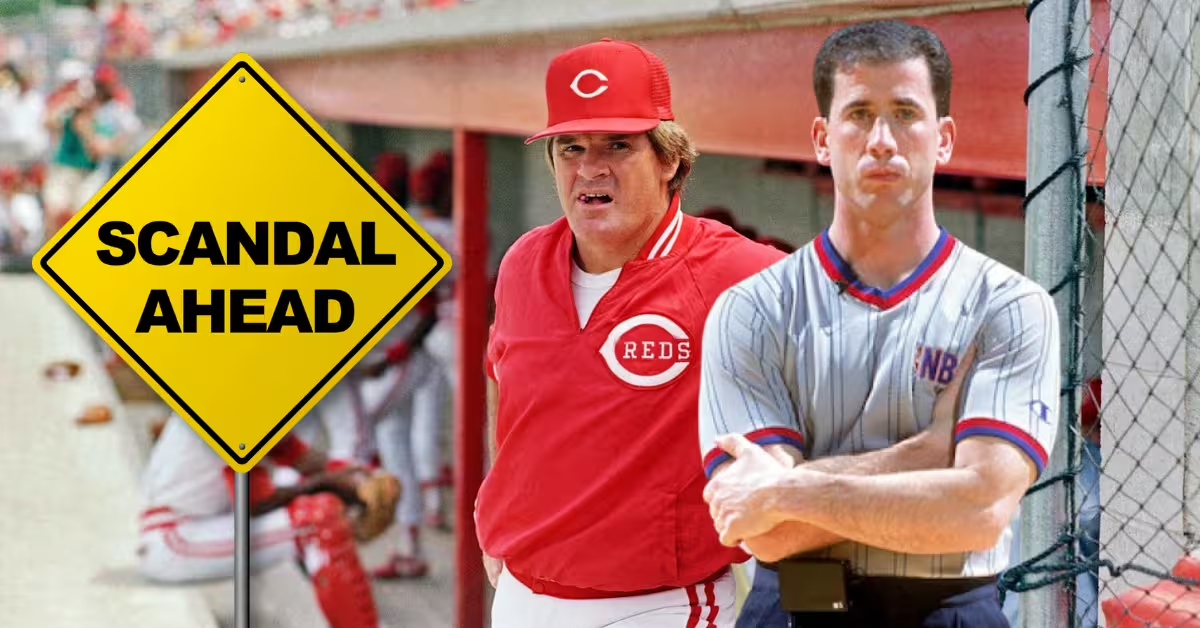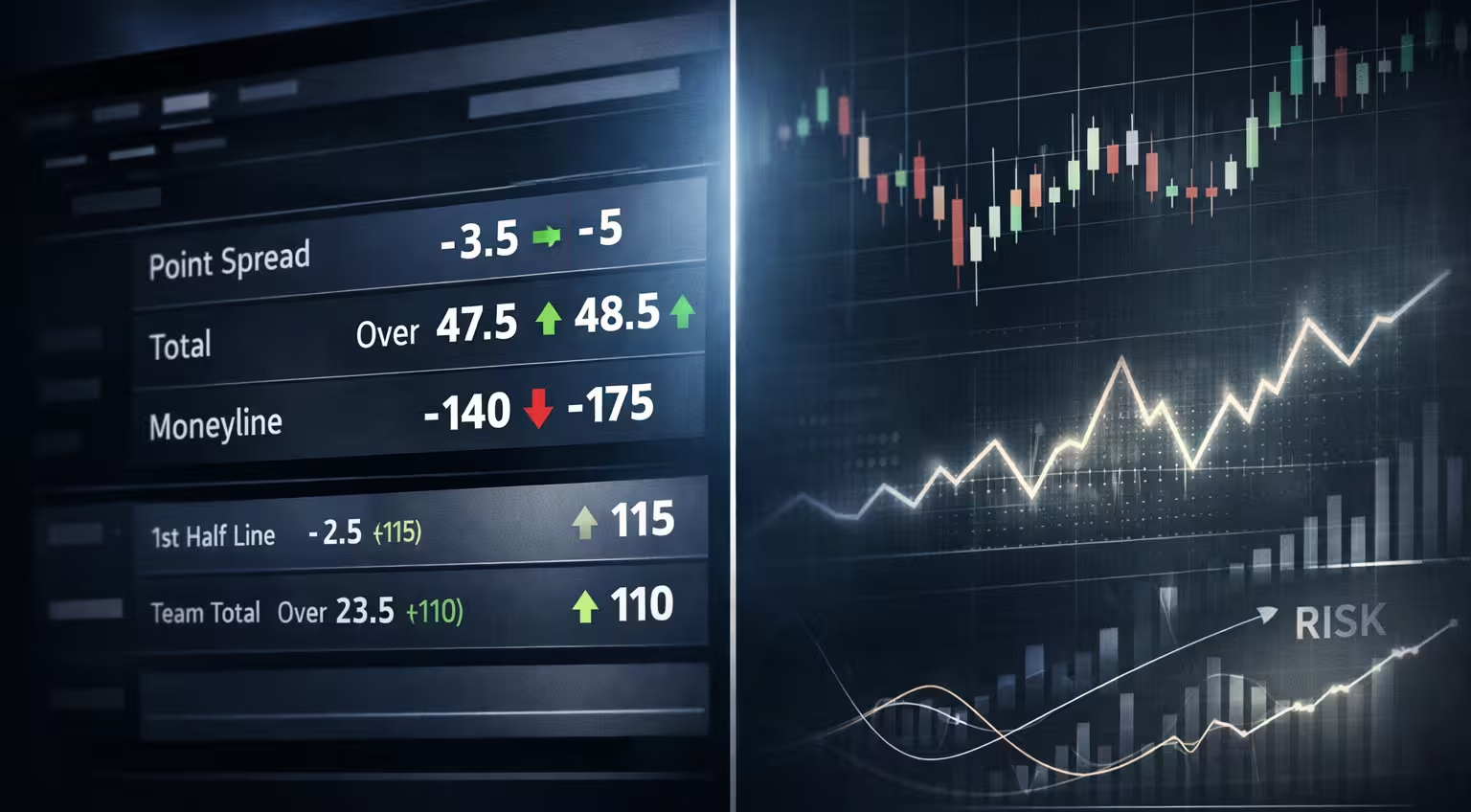Top 5 Betting Scandals in Sports History (And What We Can Learn)

Scandalous behavior has always been a magnet for public curiosity, and it always will be. We love a good scandal, don’t we? As long as we aren’t part of it and get to watch from the outside, of course.
No one wants to be caught up in one! Unfortunately, the betting world has been rife with betting scandals. And they have left the onlookers and the participants shooketh.
We don’t say that in jest; millions of dollars have been lost, careers have been ruined, and the consequences have been harsh. But there’s a little silver lining to scandals seeing the light of day; in order to increase the trust of the public, the regulations surrounding betting have improved.
How? We’ll get into all of it as we explore the top 5 scandals in history and what we’ve learned from them! Let’s get scandalous, shall we!
1919 Black Sox Scandal: The Fix That Shocked Baseball
If you want the OG blueprint of a sports betting scandal, the 1919 World Series is it, hands down. It wasn’t just rigged, no, this was a full-on inside job, and it was pulled off by some of baseball’s biggest names. And the league? They never saw it coming.
At the time, the Chicago White Sox had the kind of roster that should’ve pummeled the Cincinnati Reds. But instead of winning, the Sox played like a minor league team. There were unforced errors, awful throws, and swings that did NOT resemble the Black Sox. Fans were not only disappointed, but they were also really confused. The Reds weren’t supposed to win, and it was over in eight games. There was a huge disconnect between the way they played before the series and during.
The whole mess started with White Sox first baseman Chick Gandil. He was tired of being underpaid by a Scrooge-ish owner and was also aware of how exposed the sport was, so he took matters into his own hands. He contacted gamblers and offered to tank the Series for the right price. And it wasn’t a solo endeavor. He pulled in seven of his teammates, including pitcher Eddie Cicotte and outfielder Happy Felsch. Their motivation was as old as time: they wanted money, and they didn’t trust the team to give it to them.
On the other side were the gamblers, and they were organized, connected, and happy to help, as they were gonna make a killing. Arnold Rothstein, a well-known figure in the New York underworld, was believed to have financed the entire operation. Although his name never appeared on paper, everyone knew he was involved.
The signs were there from the first pitch. Cicotte hit the leadoff batter in Game 1, a pre-arranged signal that the plan was a go. The Sox went on to lose that game, and the sabotage continued: missed cutoffs, bad jumps, lazy swings. Fans booed. Sports writers were confused. And still, the league sat on its hands.
It wasn’t until mid-1920 that things finally broke wide open. A grand jury was investigating broader gambling ties in baseball when the story started to come to light. The players confessed; some came forward on their own, and the rest did under pressure. Cicotte came clean. Shoeless Joe Jackson admitted he’d taken money but insisted he had played the Series straight. He hit .375 in the Series and didn’t make one single error. But in the end, it didn’t matter. Public opinion had already changed, and the league needed to give them scapegoats.
Baseball responded by appointing Judge Kenesaw Mountain Landis as commissioner and giving him unchecked power. His first move was to ban all eight Black Sox players for life. There would be no appeals and no exceptions. And that included Jackson, one of the game’s biggest players.
The White Sox lost their stars, fans lost trust in the MLB, and the league scrambled to try to rebuild its reputation. This was more than a scandal; it was a total failure of the system.
The Black Sox scandal forced baseball to get serious, and it was a loud warning shot to every other sport. The league realized too late that when you leave players underpaid, treat them like disposable parts, and ignore the influence of outside money, something’s gonna crack.
Now, the betting world is built to catch this kind of thing before it can come to fruition. Betting data is monitored, suspicious patterns are flagged, and players are constantly reminded that getting caught doesn’t mean you’ll get a slap on the wrist; you’ll be exiled.
Pete Rose: Betting on Baseball While Managing
Y’all remember Pete Rose, right? This man was the face of baseball. Rose was the all-time hits leader, a seventeen-time All-Star, and a three-time World Series champ. He played with a lot of heart, took pride in his hustle, and broke Ty Cobb’s all-time hits record.
But you probably don’t remember that about him, do you? You might only know him from his betting scandal.
Rose’s fall from grace didn’t happen while he was playing in the MLB; it came later when he was in the dugout managing the Cincinnati Reds. Pete was betting on games, and that includes the one he was managing.
What Happened
By the mid-1980s, Rose had transitioned from player to manager, and he was running the Reds from the bench, but he had a side hustle that would bury his legacy. In 1989, then-commissioner Peter Ueberroth received an anonymous tip: Rose was placing bets on baseball, including Reds games, during his time as manager. The league hired attorney John Dowd to investigate the accusations.
The Dowd Report, which was published in the summer of 1989, was brutal and had receipts. It included testimony from bookies, evidence of betting slips, and phone records that tied Rose to dozens of bets, and at least 52 involved the Reds; all placed during the 1987 season while Rose was managing the team.
He wasn’t betting against his team, but he was betting on them, which created its own set of problems. If he had money riding on a specific game, how could he manage a team without bias? What if he only used his best relievers when he had action down? And what about when he didn’t bet, did that send a signal too?
Rose denied it all, and he kept denying it for years. Even as public pressure mounted and the evidence kept piling up, he refused to admit he’d ever bet on baseball. Eventually, in August 1989, he accepted a permanent place on MLB’s ineligible list without formally admitting his guilt. It was a negotiated agreement; he wouldn’t challenge the league’s findings, and in return, MLB wouldn’t formally declare he’d bet on baseball. It was a ban, and a complete one.
The fallout for Rose was utterly devastating. His name was blacklisted overnight, and in 1991, the Hall of Fame added a rule that made anyone on MLB’s ineligible list automatically ineligible for induction, and that meant Rose would be denied any future vote. And Rose still stuck to his guns and lied.
He didn’t admit to betting on baseball until 2004, in his book My Prison Without Bars. But it was more of a half-confession, as he claimed he only ever bet on the Reds to win, never to lose. But by that point, the damage had been done. His public image had been cratered long ago, and the fans were split on the issue; some saw a player who was paying too high a price, and others saw a serial liar who’d squandered every chance he had to come clean.
MLB commissioners came and went, but none of them ever budged on Pete Rose. Bud Selig refused to lift the ban. Rob Manfred reviewed the case in 2015 and upheld it, citing Rose’s continued gambling and his never taking full accountability.
In 2025, a few months after Rose’s death, the MLB reversed course. Commissioner Rob Manfred announced there would be a policy change: deceased players on the ineligible list would no longer be barred from Hall of Fame consideration. It wasn’t a reinstatement, but it did clear the way for Cooperstown voters to revisit Rose’s case, alongside Shoeless Joe Jackson.
The Hall still requires a five-year waiting period after a posthumous eligibility change, which means Rose can’t be considered until at least 2030. But it is a possibility for the first time in decades.
Pete Rose’s scandal wasn’t a mere case of a manager breaking the rules, and it exposed a problem that’s bigger than any one man: what happens when someone who is in charge of decisions on the field has money riding on the outcome? Sure, Rose didn’t bet against his team, but that didn’t make it any more palatable. Every bullpen move and every lineup choice were questioned by people who wondered if he made it for the benefit of the team or for the bet.
And that’s the core issue here! It doesn’t matter how famous you are or how many records you hold; once the integrity of the game is in doubt, everything else is null and void. The betting world today is 10 times more visible, and odds are integrated into broadcasts and sportsbooks that are tied to the major leagues. That makes accountability non-negotiable. If the public’s going to be able to trust what they’re watching? Transparency isn’t an optional thing.
Tim Donaghy: The NBA Referee Scandal
The NBA has had its share of controversial calls, missed fouls, and questionable replays, but nothing that came close to the revelation that one of its own referees had been betting on games he officiated.
In 2007, the league’s worst nightmare became reality: Tim Donaghy, a veteran official with over a decade on the job, had been placing bets and supplying inside info to gamblers. And yes, he was doing it while he was still blowing the whistle on the court.
How It Went Down
Donaghy didn’t just put a casual wager on a few basketball game outcomes. Nope, he was working directly with known gamblers; his childhood friends Tommy Martino and Jimmy Battista, and they used Donaghy’s game insights to cash in. Donaghy had access to player injuries before they were made known to the public, knew which refs were working which games, and understood which players had friction with which officials. That kind of info? It’s priceless for bettors and makes his tips super profitable.
The FBI got wind of it during a broader investigation into organized crime and illegal gambling. Donaghy’s name popped up, and the case quickly went from an internal league matter to a federal case. By July 2007, the New York Post broke the story, and the NBA had to acknowledge the scandal. David Stern, who was the commissioner when it broke, held a press conference describing the situation as the most serious crisis he’d faced in his tenure.
The investigation revealed that Donaghy bet on games he personally officiated during the 2005–2007 seasons. According to betting records and call logs, his picks were hitting at an unusually high rate, and that meant he had more than a hunch. He pleaded guilty in August 2007 to wire fraud and transmitting betting info across state lines, and was sentenced to 15 months in federal prison.
The stain on the NBA’s image was immediate. Although Donaghy claimed he never made calls to deliberately fix outcomes, the fact that he was placing bets at all, and doing so from inside the system, undermined the public’s confidence in the fairness of games.
How did the league respond? By making the following changes:
- Referee assignments were moved to the day of the game, which limits the window for any potential leaks.
- Background checks and internal monitoring became way more strict.
- Betting line movement started being tracked more seriously, and not only by sportsbooks but by the league itself.
Gamblers and analysts who went back and looked at Donaghy’s games found some patterns. Games he officiated had point spread outcomes that deviated from expectation far more often than normal. It was obvious that something was influencing the final score, and in the eyes of the public, Donaghy had crossed a line that the league couldn’t ignore.
This particular scandal made one thing painfully obvious: referees aren’t always the neutral parties; they can be the most powerful people on the court. When one of them is compromised, the entire game becomes suspect.
It also forced the NBA to engage directly with the sports betting world. They couldn’t just pretend gambling didn’t exist. They had to work with sportsbooks, track data in real time, and create guardrails that didn’t exist before. Now that legal sports betting is front and center, it only works if leagues can guarantee that the games aren’t being manipulated.
What happened with Donaghy wasn’t only a personal failure, like with the Black Sox scandal, it was a systemic failure. And it forced the NBA to start treating betting integrity like a main part of the business and not some kind of a PR crisis.
Juventus & Calciopoli: Italian Soccer’s Dirty Secrets
Over in Europe, Italian football collapsed under the weight of its own scandalous secrets. The 2006 Calciopoli scandal didn’t only have a few shady calls or a couple of missed penalties; it went so much deeper than that. Club executives, league officials, and referee organizers weren’t only influencing matches; they were manipulating them on a massive scale.
What Happened
The scandal was discovered when Italian prosecutors released tapped phone calls between Juventus director Luciano Moggi and senior referee officials. The content left zero room for interpretation; Moggi was actively steering referee assignments, making sure certain officials landed on games that would go in Juve’s favor or hurt their rivals. One alleged incident involved Moggi locking officials in a dressing room after a disputed loss!
And he wasn’t operating alone. Investigators linked figures at AC Milan, Fiorentina, Lazio, and others to the same web of backchannel influence.
Juventus took the hardest fall of the clubs; it was stripped of its 2004–05 and 2005–06 Serie A titles and relegated to Serie B. Before they even kicked a ball the next season, they were hit with a points penalty. Other clubs involved managed to stay in Serie A after reduced sanctions, but the reputational hit was huge. Referees were suspended, club executives were banned, and some were dragged into criminal courtrooms. But Juventus, which was arguably the face of Italian football, was made the public example.
In addition to the phone logs, there were even more troubling concerns. Officials who made questionable calls weren’t being disciplined. Some weren’t even being reviewed. The entire structure, appointments, accountability, and match oversight had been bent to serve club interests. What looked like it was a competitive league was being managed via back channels.
When the scandal was made public? It changed everything. Fans stopped showing up to games. TV ratings were in the toilet. Broadcasters pulled back on bids for Italian rights. Serie A’s rep tanked across Europe, and it took years to recover.
For bettors, the effect was instantaneous. Oddsmakers began to treat Italian football as volatile. The question wasn’t just “who has the better squad?” but “is this match above board?” Any late line movement or referee swap raised hackles. Sportsbooks got way more cautious with Serie A, and some punters avoided it entirely.
The scandal also triggered a change in how leagues across Europe approached officiating. Referee assignments became more transparent. Betting regulators started flagging suspicious patterns tied to certain clubs or officials. And the idea that a domestic powerhouse could be punished that severely sent a very loud and clear message across the European sports world.
Calciopoli didn’t expose a single bad actor, but a whole intricate system where results could be steered from the boardroom. Referees weren’t being chosen for fairness. They were merely tools used by clubs to protect their position. That kind of interference erodes everything that the sport relies on.
For bettors, that means the usual tools (stats, form trends, player analysis) aren’t enough when league oversight is weak. If the structure behind the game isn’t stable, no prediction is secure. You’re not betting on talent; you’re betting on if the game was allowed to play out honestly.
Italy has spent years rebuilding after Calciopoli. But the damage it caused still reverberates across European betting markets. It’s a stark reminder that when league power goes unchecked, every bet comes with hidden risks.
The 2000 Hansie Cronje Case: Cricket’s Criminal Chapter
Hansie Cronje had the trust of an entire nation. He was respected by his teammates, praised by broadcasters, and admired outside cricket. That all changed in April 2000, when India’s crime branch released phone transcripts tying South Africa’s golden boy to bookmakers. The charismatic cricket leader had taken money from bookmakers to rig matches.
How It Went Down
The break in this scandal came during South Africa’s tour of India. Delhi police were already running a wiretap investigation into organized betting rings when they picked up a string of calls between Cronje and a bookmaker named Sanjay Chawla. The conversations laid out match details, like toss decisions, batting orders, player substitutions, and payments, were attached.
At first, Cronje denied everything. He claimed the recordings were fake and the story was manufactured. That defense didn’t hold up. Within days, the evidence piled up and included cash transfers, hotel meetings, and messages that tied his instructions to outcomes on the field. Under pressure from investigators, Cronje admitted to accepting over $100,000 from bookmakers. And it didn’t end with him. The fallout from his confession pulled in other South African players, including Herschelle Gibbs and Henry Williams, who also admitted they were approached with offers to underperform.
The King Commission hearings made the whole scandalous saga public. Cronje’s credibility was gone, and by October 2000, he was dealt a lifetime ban from cricket; there would be no appeal. Two years later, he died in a plane crash at the age of 32.
Cronje’s admission forced the cricket world to reckon with a problem it had been really slow to acknowledge or confront. The International Cricket Council responded by creating its Anti-Corruption Unit. Governing bodies began tracking player communications more closely. Internal reporting systems were set up to flag suspicious activity. Players started receiving mandatory briefings on how to handle gambling approaches. The structures that exist today, which include monitoring, education, and oversight, are all largely traced back to this scandal.
It also created more risk for bookmakers and bettors. Outcomes in international matches weren’t only being decided by skill or form, no, they were being sold. Trust in the betting markets dropped around matches in less regulated environments. Cronje’s case reminded everyone that even marquee players, playing in front of global audiences, could be compromised.
This wasn’t a one-off blunder for bettors; it exposed just how fragile certain betting environments can be. Especially in leagues that have limited oversight or offshore match setups! The risks are higher than bad picks or bad luck. If the people involved can be swayed by money, then the numbers on the stat sheet don’t mean anything at all.
Cronje’s legacy is really complicated, but the impact of his actions is not. His scandal didn’t only stain a career; it changed the sport’s entire approach to integrity. And it’s why smart bettors now ask more than “who’s in form?” before making a bet.
What These Scandals Teach Modern Bettors
You don’t need to be a history buff to learn from a scandal! It doesn’t matter if it was a ref on the payroll, a captain pocketing envelopes, or a league that turned a blind eye; all of the above scandals left a trail, and with it, lessons for anyone who bets on sports.
Because while the headlines might change, the patterns haven’t. If you’re betting like it’s always a fair game, you’re giving way too much credit to people who’ve proven that they don’t always deserve it.
Common Patterns
What are the most common patterns when it comes to sports betting scandals? The following factors:
- Insider access to decision-making: Whether it was a manager, a ref, or a captain, every scandal involved someone who had real influence over the outcome. Once that person got involved in betting or accepted a bribe, everything downstream, player effort, coaching calls, and officiating, was compromised.
- Loose oversight and unclear accountability: Most of the cases played out in environments where regulators just weren’t prepared. There were no checks on communication, no formal flagging systems for suspicious betting, and zero transparency around decision-making.
- No deterrent until it was too late: In most cases, punishment only came after the damage was done. Careers were ended, yes, but only after bets were placed, results recorded, and trust was already gone.
Takeaways for Bettors
- Only use regulated sportsbooks: If you’re wagering with an unlicensed site or offshore book, you’re playing with no safety net. Regulated books are tied to integrity networks and monitored betting markets. If something looks off? They’ll investigate.
- Ignore people selling “inside info”: If someone is promising you a fix or claiming to know how a game will end, run. Scams like this prey on bettors who are hoping for shortcuts. No legit edge comes from suss messages in Telegram groups or “tipster” TikToks.
- Watch line movement: Sudden shifts in odds are caused by injuries, weather, or late lineup changes. But they can also point to something more suspicious. If a line moves hard for no visible reason, take note and do your due diligence.
- Use data and integrity monitoring tools when available: Almost all sportsbooks and betting markets have real-time alerts on suspicious activity. Tools like these can show you when betting patterns don’t match public expectations.
How the Industry Has Changed Since These Scandals
If there’s any kind of an upside to past scandals? It’s that they forced the industry to stop pretending games will police themselves. Leagues, sportsbooks, and data companies now work together more closely than ever before to flag suspicious behavior before it turns into another Donaghy or Calciopoli!
The Role of Sportsbooks and Betting Data
Sportsbooks aren’t just taking bets; they’re also watching them. Every wager feeds into a system that tracks unusual volume, unexpected line movement, and bets placed under suspicious circumstances. If an obscure tennis match in Eastern Europe suddenly attracts six figures of action in an hour, that doesn’t go unnoticed.

The alerts get passed up to league partners, regulators, and, in some cases, federal investigators. Some sportsbooks will freeze markets mid-game if something looks off. That kind of intervention didn’t exist 20 years ago.
How Leagues Use It
Leagues have stopped acting like betting is a nuisance to be ignored. In the U.S., the NFL, NBA, NHL, and MLB all have formal partnerships with betting companies. They’re not doing it for promo codes; they’re plugging into live data streams that help flag patterns, missed red flags, or any outcome that doesn’t match up with the expected model.
In Europe, this is even more embedded. UEFA and the ICC work with third-party integrity firms that audit betting behavior across hundreds of matches each week. It’s not a totally foolproof system, but it gives leagues a fighting chance to catch things early rather than later.
Positive Changes Toward a Safer Betting Environment
The sports betting landscape in the U.S. looks nothing like it did a decade ago, and that’s a very good thing! Since the federal ban was overturned in 2018, legal betting has become one of the most popular pastimes. But it’s not growth for growth’s sake. Regulation, oversight, and transparency have improved dramatically, and that makes the U.S. market one of the more structured environments where you can place a bet.
Licensed sportsbooks are required to follow state-level rules, report unusual betting activity, and cooperate with integrity investigations. Operators in places like New Jersey, Colorado, and Pennsylvania are working under real frameworks. State gaming boards can suspend licenses, pull products, or open investigations if and when they need to. That kind of pressure forces sportsbooks to take integrity seriously.
The NFL, NBA, MLB, and NCAA have all rolled out internal betting policies, education programs, and formal data-sharing agreements with sportsbooks. They’re not relying on “honor systems” anymore; they’re investing in the tools to detect tampering or abuse.
There’s still a lot of room to grow; some states are stricter than others, and enforcement can be uneven, but the general direction is good. The U.S. market is no longer pretending that betting doesn’t exist. It’s regulating it, tracking it, and making the system way harder to exploit, and that’s better for anyone who is putting real money on the line.
Conclusion: Shooketh by Sports Betting Scandals
If there’s one thing the scandals we discussed prove? It’s that no sport, league, or era has ever been totally immune to manipulation. From the baseball diamonds in 1919 to cricket tours in 2000, the common denominator has always been access, influence, and a system that didn’t react fast enough.
That’s changed, at least in part. Oversight has gotten better, the leagues are now more involved, and gambling sites monitor their own data in real time. But there is no setup that is 100% bulletproof, so the risk hasn’t completely disappeared; it’s just morphed into something different.
Here’s a quick refresher on the top 5 betting scandals in sports history and what we can learn from them:
- Past scandals not only ruined reputations; they also pushed sports leagues to build stronger safeguards.
- Regulation always matters, but there is no system that’s capable of catching everything. Stay frosty!
- Smart bettors track context, not only odds. If something feels off, listen to your instincts.
- History tends to repeat itself when people stop paying attention, and all major betting scandals happened because someone thought no one was watching. You can learn from that!

Alyssa contributes sportsbook/online casino reviews, but she also stays on top of any industry news, precisely that of the sports betting market. She’s been an avid sports bettor for many years and has experienced success in growing her bankroll by striking when the iron was hot. In particular, she loves betting on football and basketball at the professional and college levels.








